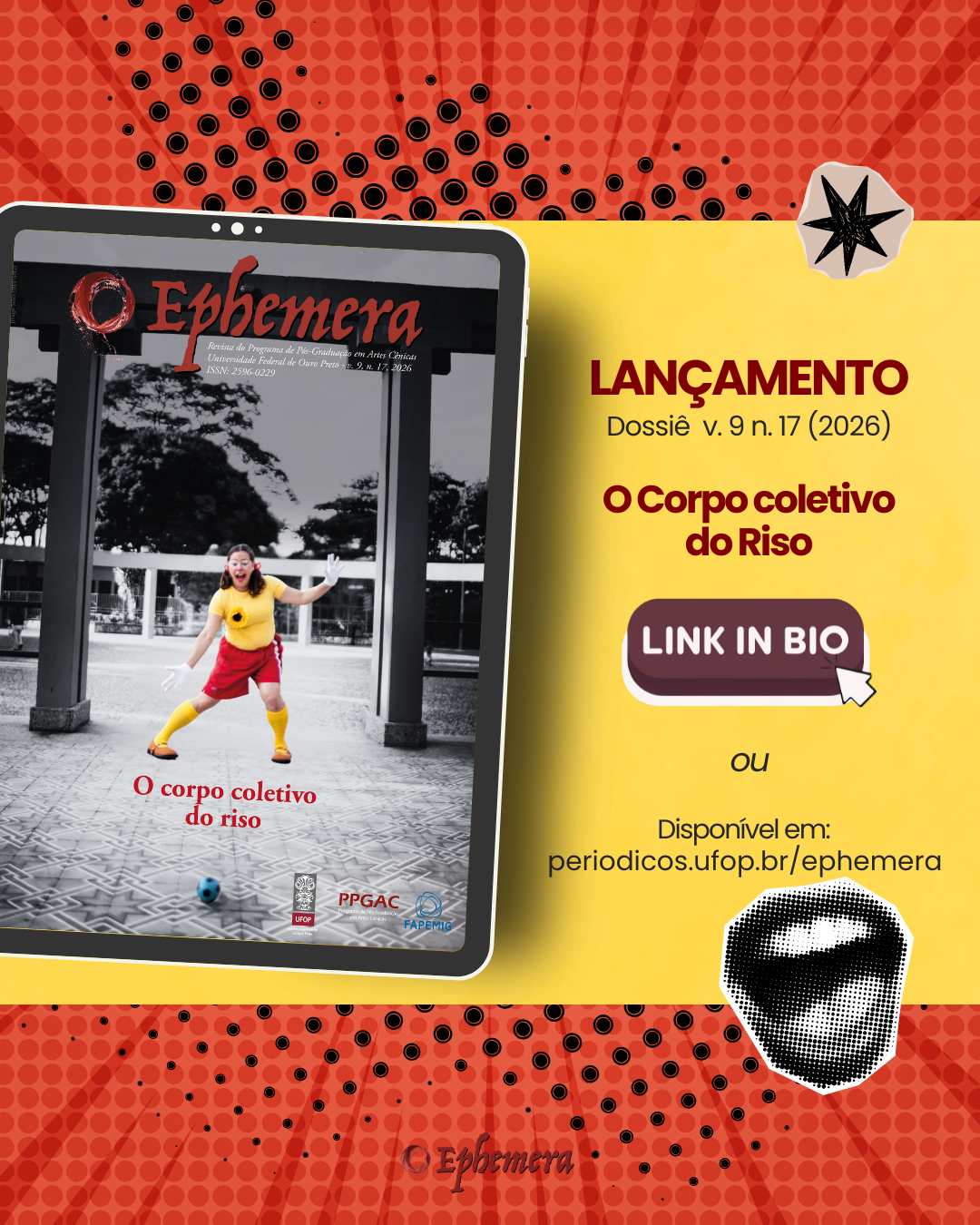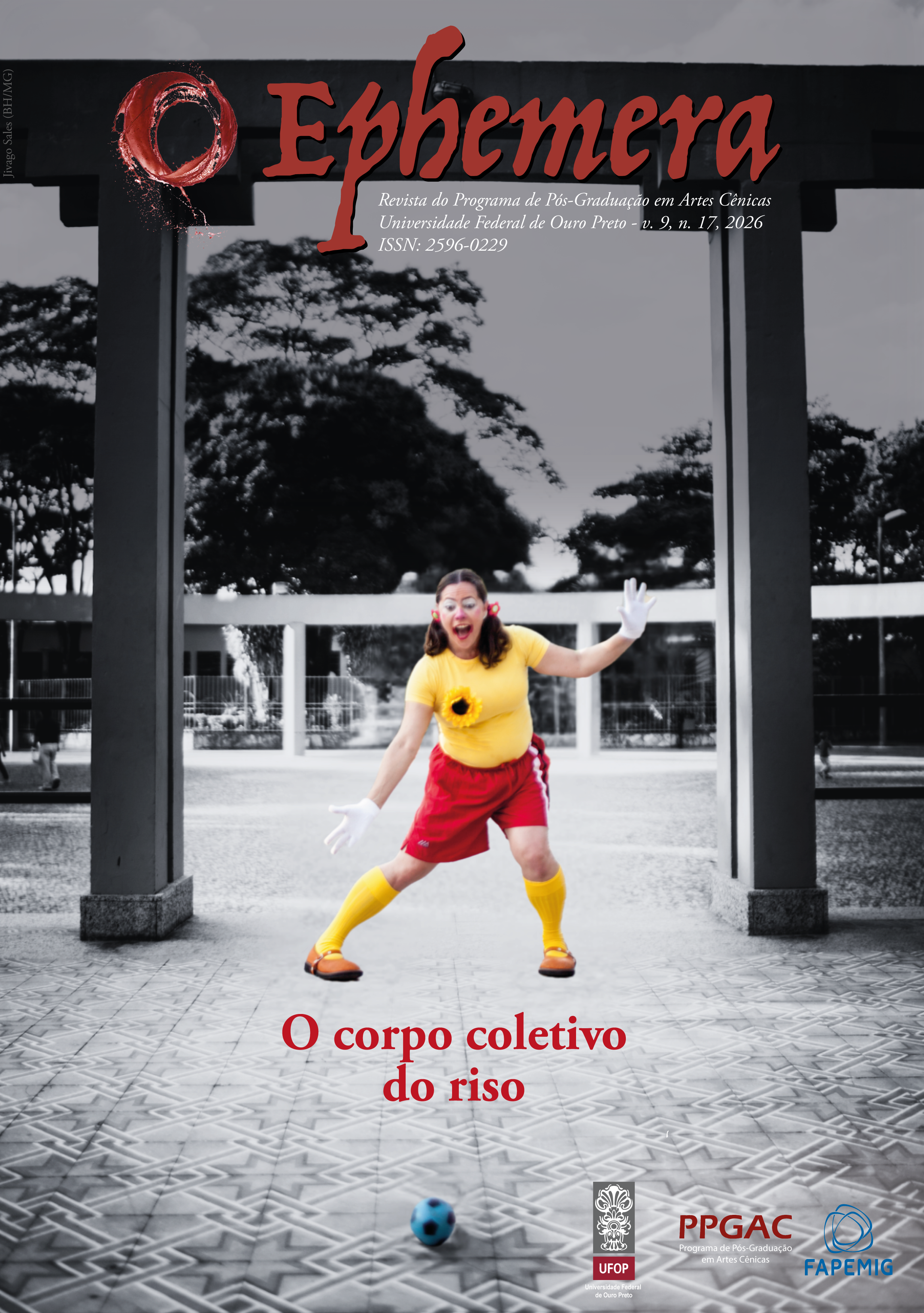NOVO LANÇAMENTO: Dossiê v. 9 n. 17 (2026): "O corpo coletivo do riso"
2026-02-03
Nova edição da revista Ephemera está no ar!

Nova edição da revista Ephemera está no ar!


O volume "O Corpo coletivo do Riso" quer estimular a reflexão sobre os desdobramentos políticos e performáticos da arte do riso e da palhaçaria nas estruturas sociais atuais. Buscamos os artistas da cena que investigam o riso e o humor, seja por meio da criação seja pelo estudo sobre as diversas plateias fruidoras da cena cômica espetacular. Olhamos para o riso como ação performática e política, envolvida com processos de ensino e de composição de ações artísticas, organizando-se sob os aspectos da participação direta da/os fruidoras/es, da imprevisibilidade que agrega o tempo presente às apresentações e do movimento ritual, voltados à composição do humor.
ISSN: 2596-0229
